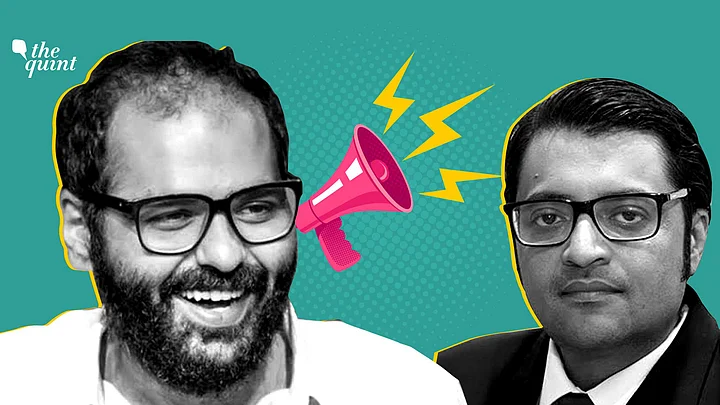If you have been following the Kunal Kamra case, (it is difficult not to if you are on any kind of social media), then you might have gathered that the dominant liberal point of view is that Kamra was wrong in ‘heckling’ Arnab Goswami on a flight but that the government coercing private airlines to ban Kamra from flying with them was excessive. Seems fair?
Here lies the rub – “When something seems ‘the most obvious thing in the world’ it means that any attempt to understand the world has been given up.” Writer and theatre practitioner Bertolt Brecht said that.
It is likely that Brecht would have instinctively seen through the false equivalence between arguable rudeness and a blatantly authoritarian reaction on the part of the government.
It is even more likely that he would have thought of Kamra’s invasion of Goswami’s privacy as potently relevant theatre.
Normalisation of Crimes and the Role of Arts
News anchors in our times have fanned hatred, encouraged bigotry, helped the government pass and defend harmful laws, delegitimized political opposition, and ripped the social fabric of this country. Any number of posts critiquing Kamra have argued that those who don’t like what Goswami says on air should simply change the channel.
This is privilege at best and denial at worst. Changing the channel will not prevent hate filled political propaganda from seeping into the very society we live in and rot setting in.
It will not prevent the lives of minorities and activists who are at the receiving end of this propaganda from unravelling because of it. It will provide no succor to Shadab, a young student of journalism, who was shot at while marching peacefully towards Gandhi Smarak as I wrote this. It will not erase the fact that as he is being operated upon in hospital, Goswami’s news channel is lying to thousands of viewers by saying “Jamia protestor uses gun”.
“When crimes begin to pile up they become invisible. When sufferings become unendurable the cries are no longer heard. The cries, too, fall like rain in summer,” said Brecht. How does one redeem the cries that are no longer heard? How does one call out crimes that have become normalised? What role is art to play in this scenario? Emotive pleas and ethically and politically correct statements stir feelings and lull you into a false sense of security – security that outside your echo chamber the world is not falling apart.
Kunal Kamra’s Brechtian Intervention
Brecht knew that “human beings go to the theatre in order to be swept away, captivated, impressed, uplifted, horrified, moved, kept in suspense, released, diverted, set free, set going, transplanted from their own time, and supplied with illusions” and warned against the dangers of art that enables this. He believed that in order for art to be effective both actors and audiences must not identify with the characters. That a performance should weigh on viewers’ minds, make them struggle with their conscience, and most importantly discomfit them by dragging them out of a false sense of righteousness.
Wittingly or otherwise, that is precisely what Kamra did when he took his camera to Goswami on a flight and performed the latter’s grotesque staple act right back at him.
“Art is not a mirror with which to reflect reality, but a hammer with which to shape it,” said Brecht. Kamra’s intervention did not just confront Goswami – it confronted every enabler of Goswami’s. It made every viewer, whether an admirer or Goswami’s or otherwise, uncomfortable. It reminded those who have switched the channel long ago that their heads are in the sand, in a manner that the millionth tweet and thousandth op-ed on the downfall of news media has failed to do.
Art Needs to Make Us Think
When Brecht advocated the breaking of the invisible fourth wall he neglected to mention that often the fourth wall is in our heads, that its position keeps shifting as the reality of media change. What happens behind the fourth wall of the news station does not stay there but we grow accustomed to thinking it does. Kamra shattered that wall and we know that because we were no longer watching from a safe distance. Because it made our own complicity in everyday heinous acts plainly visible to us.
Instead of dismissing Kamra as a comedian who went too far we should be taking notes. It is not often that one comes across a legal, constitutional act that is nonetheless radical enough to question status quo.
Art that does not fit this definition can do little for us at this point in time.
“General, man is very useful. He can fly and he can kill. But he has one defect: He can think,”
Wrote Brecht.
The litmus test of relevant art is will it make man think, not feel. Kamra just passed that test and that is a whole lot more than one can say about most artists of our times.
(Pragya Tiwari is a Delhi-based senior journalist, who was formerly with Vice India. She tweets at @PragyaTiwari. This is an opinion piece. The views expressed are the author’s own. The Quint neither endorses, nor is responsible for them.)
